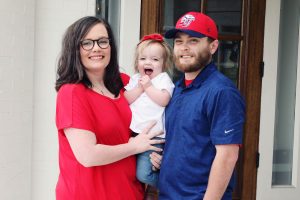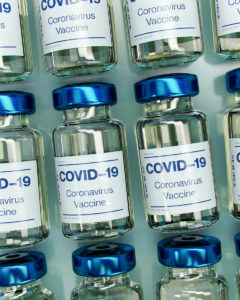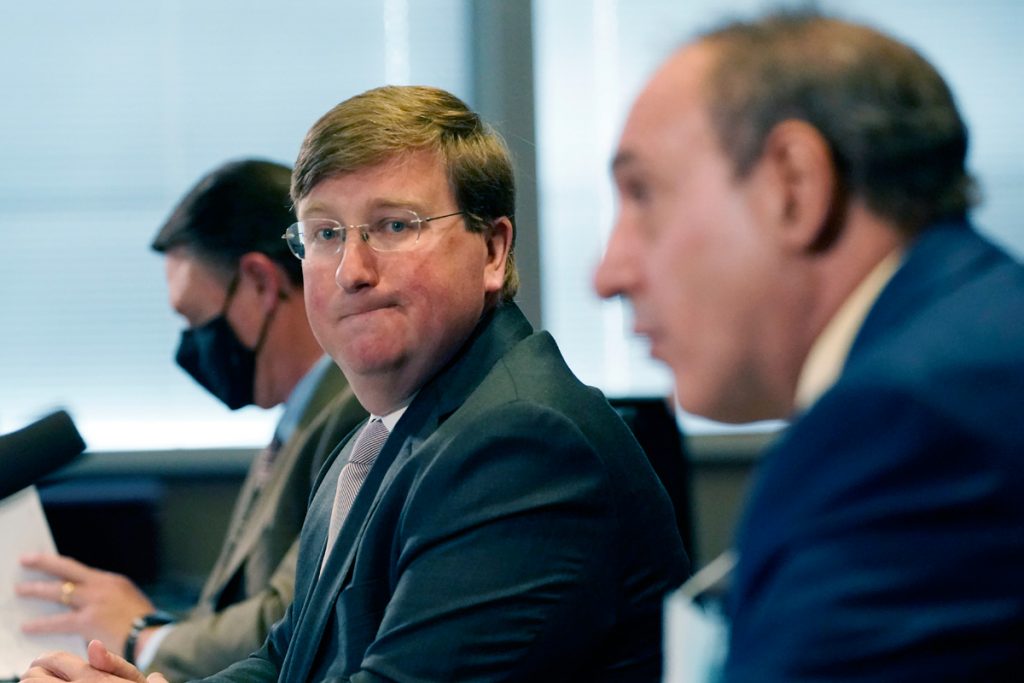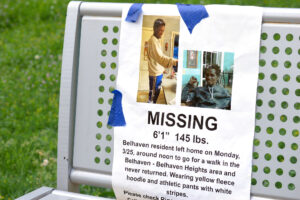Cathryn Warren is a special-education teacher in Lamar County who specializes in behavior modification. She has been back in the classroom since August of last year—this morning, Warren was able to schedule her first dose of vaccine after Gov. Tate Reeves announced yesterday that school teachers and first responders are now eligible for the COVID-19 vaccine.
“At first, my anxiety was pretty high. We didn’t have any sort of knowledge of when—or if—vaccines were coming,” she told the Mississippi Free Press in an interview today. Her anxiety was lessened with the help of a proactive health official in her school district, coupled with the knowledge that protection was on its way, but she has been eager for a concrete date that has finally arrived.

After yesterday’s announcement, teachers and first responders joined seniors aged 65 and older, health-care workers and individuals with qualifying pre-existing conditions. Vaccine sign-ups are available at https://covidvaccine.umc.edu/ or by calling 1-877-978-6453.
Specifically, the new availability extends to “teachers, staff members and employees in K-12, preschool or childcare settings,” as well as “law enforcement, fire services, public safety, and emergency management officials.”
Gov. Tate Reeves publicized the expanded eligibility at a Tuesday afternoon press event, lauding the progress the state has made in vaccinations thus far and encouraging the new population segments to take advantage of the revised guidelines.
“Our kids have been growing. They’ve been achieving. That’s because of the dedication of our teachers, and we want to make it even more safe for them to do their jobs,” Reeves said.
Reeves explained that increasing saturation of vaccine for individuals aged 65 and older triggered the expanded access. “We have now inoculated over 200,000 Mississippians over the age of 65. That is somewhere between 40% and 45% of the entire population.”
Now, with so many qualifying Mississippians vaccinated or scheduled to be vaccinated, public-health officials have observed longer periods of time between new doses becoming available and being filled.
“If you remember, the 30,000 new appointments we put online and available at the call center last Tuesday took a little over 24 hours to get filled,” Reeves said. “In comparison, a month ago, it took about 24 seconds for those 30,000 to get filled.”
Warren is thrilled to be on track to receive a vaccination that will protect her if the virus comes to her classroom. But that joy is tinged with guilt. “I feel bad for my parents, who are older, but live out of state. They’re having a significantly harder time. My mother is 73, and there’s no vaccine to be found,” she said.
“I have friends who lost their parents weeks before the vaccine became available,” Warren said.
The educator’s mother, who lives in Maryland, is technically eligible for the vaccine, but her county is currently preferencing older adults and health-care workers, leaving her waiting for a shot.
And when the whole family has the shot, a long-awaited reunion is at the top of her list of priorities. “We used to go to Maryland four times a year,” she said. “I don’t care about sightseeing. I just want to see them.”
Johnson & Johnson Vaccine Protects Against Death, Hospitalization
Other good pandemic news arrived today with a Food and Drug Administration briefing that shows the Johnson and Johnson vaccine is remarkably effective at preventing the most serious complications from COVID-19, signaling that an acceleration in the vaccination campaign is close at hand, based on FDA data posted this morning.

The data reveal that the company’s single-shot vaccine prevented severe cases of COVID-19—compared to a placebo group—at a rate of around 76%. That protection grows over time: for cases beginning 28 days after vaccination, the total protection from severe cases rises to around 84%.
Severe (and critical) cases are defined to include any one of the following conditions: Clinical signs at rest indicative of severe systemic illness, respiratory failure, shock, significant acute renal, hepatic, or neurologic dysfunction, admission to the ICU or death.
While the two-shot mRNA vaccines from Pfizer and Moderna have shown higher efficacy in preventing mild-to-severe cases of COVID-19, one key finding from the study shows the importance of the new shot.
“There were no COVID-19-related deaths and no COVID-19 cases requiring medical intervention occurring 28 days or more post-vaccination among participants age 60 years or older with medical comorbidities in the vaccine group,” today’s FDA briefing document reads.
This clinical evidence that the Johnson and Johnson vaccine prevents hospitalizations and deaths in the long-term is an extremely positive sign for the shot, which is likely to become the third approved vaccine in the U.S. this coming Saturday.
Notably, the Johnson & Johnson vaccine includes significant clinical data from South Africa—12.7% of the entire study population. South Africa struggled with the B1.1.351 variant of COVID-19 during the trials, a strain of coronavirus that National Institute of Allergy and Infectious Disease researchers have said shows resistance to neutralizing antibodies like those the vaccine generates, unlike many other strains.
As expected, the Johnson & Johnson vaccine performed less effectively in South Africa, where 95% of sequenced cases were found to be the B1.1.351 variant. Still, even in a country riven with a strain of coronavirus feared to be potentially vaccine resistant, the Johnson & Johnson vaccine showed promising preliminary evidence of long-term protection against critical cases of the virus.
It is important to note that the clinical study was designed to answer two extremely specific questions: Is the vaccine safe, with no dangerous side effects upon injection, and how effective is at preventing moderate-to-severe cases of COVID-19. Therefore, while there is evidence in the study as to its specific efficacy against, for example, a specific strain of the virus, scientific interpretation of the results will generally focus on those two questions alone.
The study found that participants react to the Johnson & Johnson vaccine similarly to the Pfizer and Moderna shots. Vaccinated individuals can expect a reasonable chance of sore arms, headaches, muscle pain and fatigue, transient symptoms that will last a short period of time.










